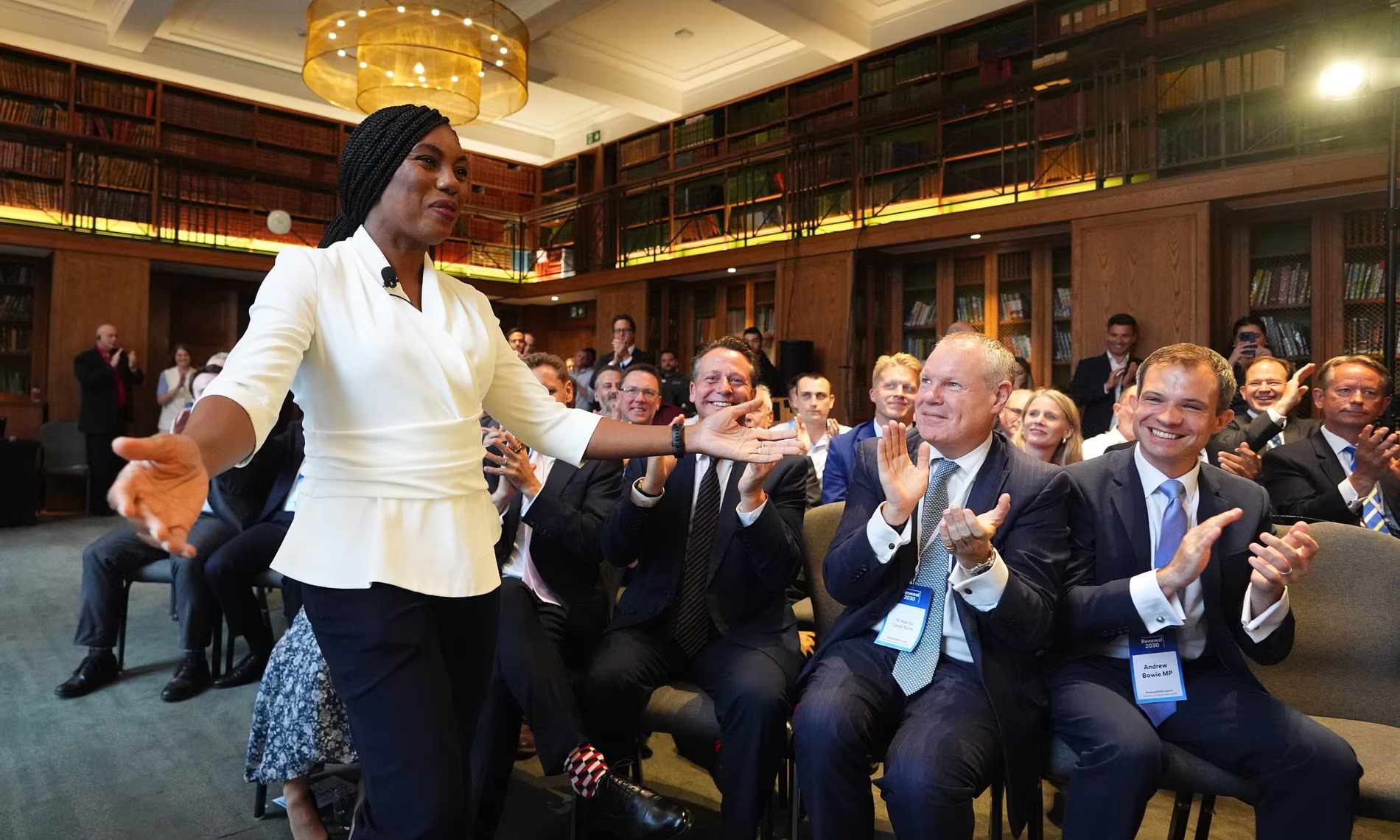Kemi Badenoch, a contender for Conservative Party leadership, has emphasized that immigrants who bring “foreign conflicts” should not be welcomed in the UK. She advocates for adherence to “Western values” and maintaining the principles that have contributed to the country’s success.
Badenoch highlighted the need for immigrants to integrate into British society, sharing its values, rather than importing cultural hostilities from their countries of origin. She believes not all cultures are equally valid, specifically pointing out that cultures where women are subjugated should not be considered on par with the UK’s values of gender equality.
Meanwhile, her leadership rival, Robert Jenrick, has focused on reducing immigration numbers and leaving the European Convention on Human Rights to address immigration challenges. While Badenoch has not supported this idea, Jenrick stresses the importance of capping net migration in the “tens of thousands” and implementing a legally binding cap to regain public trust.
He criticizes the current approach as too lenient and fears it will lead to further in-fighting and loss of voter support. Jenrick believes reducing immigration can be achieved without significant economic disruption, although he admits it won’t be easy.

Kemi Badenoch Advocates for Cultural Integration Amid Conservative Leadership Race, Clashing with Rival Robert Jenrick on Immigration
The Conservative leadership contest, involving Badenoch, Jenrick, James Cleverly, and Tom Tugendhat, is set to intensify as the party’s conference in Birmingham progresses. The candidates will present their visions to the Tory base, after which MPs will narrow the field down to two finalists before the broader party membership votes for a new leader.
The winner, who will succeed Rishi Sunak, is scheduled to be announced on November 2. Immigration remains a central issue in the race, particularly in light of the party’s recent electoral losses to Reform UK.
Badenoch’s stance on immigration, particularly her cultural emphasis, has sparked debate with Jenrick. While he stresses reducing immigration numbers, Badenoch insists that the cultural aspect is more crucial, arguing that ensuring immigrants embrace British values is key to societal cohesion.
She rejects the idea that all cultures are equally valid, citing practices that oppress women as incompatible with British values. Badenoch’s personal experience as someone who emigrated from Nigeria has informed her perspective on the importance of cultural integration.
The leadership candidates also reflect on the Conservative Party’s recent failures. James Cleverly has pointed to internal party infighting as a key factor behind their poor showing in the last general election. He argues that the public grew tired of the constant leadership changes and internal discord, urging the party to focus on the needs of the electorate rather than internal politics.
Tugendhat, meanwhile, leans on his military background to assert his leadership credentials, advocating for strong, consistent leadership based on public service and national commitment.
